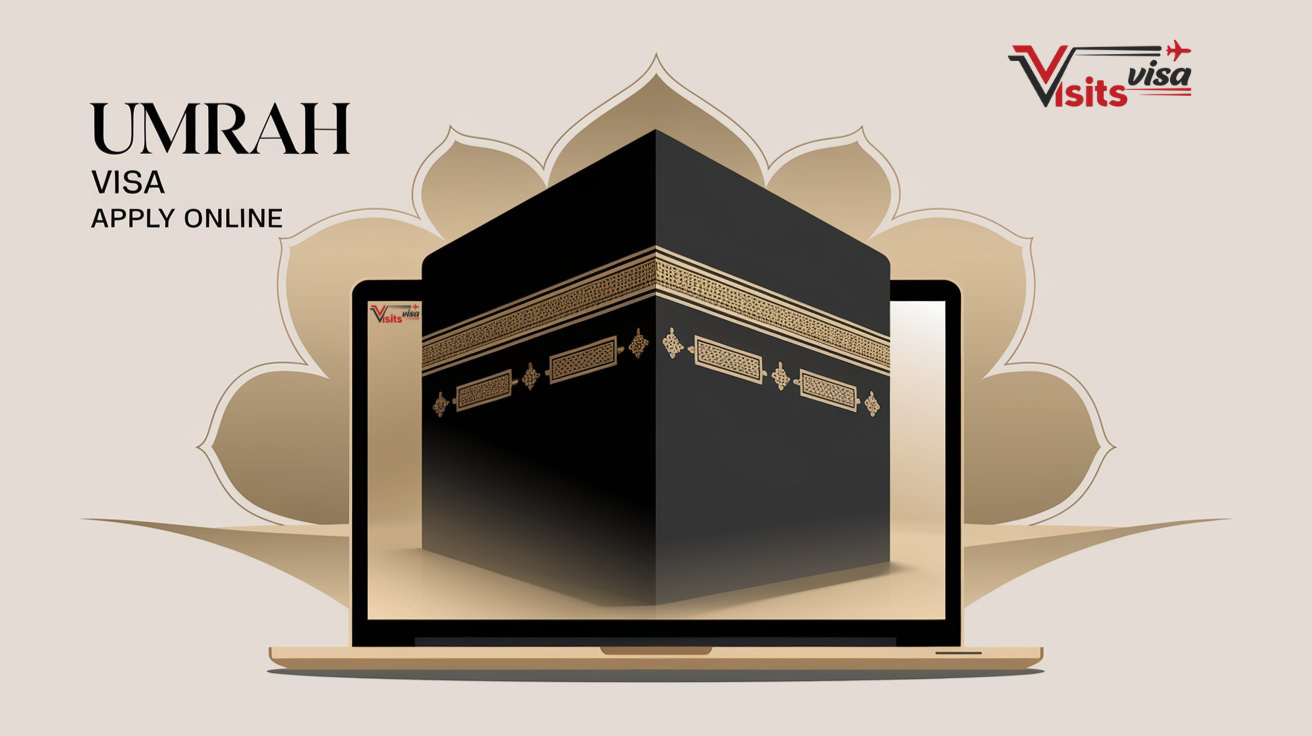Saudi Arabia, known for its rich culture and history, is a popular destination for both tourists and expatriates. However, many visitors to the kingdom may find themselves in need of a visa extension for various reasons. Whether it’s for work, residency, or religious purposes, the process of obtaining a visa extension in Saudi Arabia can be complex and requires careful planning.
In this article, we will explore the different types of visa extensions available in Saudi Arabia, as well as the requirements and process for obtaining each one.
Types of Visa Extension in Saudi Arabia
1. Work Visa Extension:
Applying for a work visa extension in Saudi Arabia can be a complex process, but with the right information and preparation, it can be done successfully. A work visa extension is necessary for those who are already working in Saudi Arabia and need to extend their stay in order to continue working for the same employer. In this article, we will explore the steps involved in applying for a work visa extension in Saudi Arabia.
Step 1: Gather required documents
Before applying for a work visa extension, it is important to gather all of the necessary documents. The required documents vary depending on the individual’s specific circumstances, but generally include:
- A copy of the individual’s current work visa
- A copy of the individual’s passport
- A copy of the individual’s IQAMA (residency permit)
- A letter from the individual’s employer, stating the reason for the extension and confirming that the individual is still employed
- A copy of the individual’s work contract
- Proof of financial stability, such as a bank statement
- Any other relevant documents, such as a marriage or birth certificate
Step 2: Initiate the application through employer
The process for a work visa extension typically begins with the employer. The employer must initiate the application and provide the necessary documentation. It is the responsibility of the employer to submit the application and all required documents to the relevant authorities.
Step 3: Wait for Approval
Once the application and required documents have been submitted, the individual must wait for approval. The processing time for a work visa extension can vary, but it typically takes several weeks.
Step 4: Renew IQAMA
Once the visa extension is approved, the individual must renew their IQAMA (residency permit) before their current IQAMA expires. The process for renewing an IQAMA is separate from the visa extension process and typically requires the individual to pay a fee and provide a recent photograph.
It’s important to note that the process and requirements for a work visa extension can vary depending on the individual’s specific circumstances and the company’s policies. Additionally, it’s always best to contact the relevant authorities for the most up-to-date information and guidance.
By following these steps and gathering all the required documents, the process of obtaining a work visa extension in Saudi Arabia should go smoothly. It’s essential to plan well in advance and stay organized to ensure that the process is completed in a timely manner.
2. Residency Visa Extension:
In Saudi Arabia, a residency visa, also known as an Iqama, is required for any foreign national who wishes to live and work in the country. The visa is sponsored by an employer or a relative and is valid for a certain period of time. Once the visa is about to expire, it is necessary for the holder to apply for an extension in order to maintain their legal status in the country.
The process for applying for a residency visa extension in Saudi Arabia involves several steps and requires various documents.
- Gather the necessary documents: This includes a valid passport, a copy of the current residency visa, and a copy of the sponsorship contract or Iqama. You may also need to provide a copy of your work contract, proof of medical insurance, and other relevant documents.
- Go to the General Directorate of Passports (Jawazat) website and create an account. This will allow you to apply for the visa extension online. You will also be able to check the status of your application, pay fees and renew or cancel your visa.
- Submit the application: Once you have filled out the online application, you will need to submit it along with the required documents. You will also need to pay the required fee.
- Wait for approval: After submitting the application, you will need to wait for it to be processed and approved. The processing time can vary, so it is important to check the status of your application regularly.
- Collect the visa: Once your application is approved, you will need to collect your new visa from the Jawazat office. You may need to provide additional documents at this stage.
It is important to note that the process and requirements for a residency visa extension can change, so it is best to check with the relevant authorities for the most up-to-date information. Additionally, it is recommended to do it well in advance of your current visa expiration date to avoid any issues or delays.
It is important to note that if the holder of the visa violates the laws and regulations of the country, the visa may not be extended or the holder might be deported.
It’s always a good idea to consult with immigration lawyers or visa consultants to ensure that your application is filled out correctly and that you have all the necessary documents.
3. Visit Visa Extension:
Applying for a visit visa extension in Saudi Arabia can be a straightforward process, but it is important to understand the requirements and procedures in order to ensure that your application is approved.
First, it is important to note that a visit visa extension can only be applied for if your original visit visa is still valid. If your visa has expired, you will need to apply for a new one.
To apply for a visit visa extension, you will need to gather the following documents:
- A copy of your passport, including the page with your visa
- A copy of your residence permit (if applicable)
- A completed application form, which can be found on the website of the Saudi Arabian Embassy or Consulate in your country
- A valid reason for the extension, such as a medical emergency or business-related reasons.
Once you have gathered all of the necessary documents, you will need to submit them to the nearest Saudi Arabian Embassy or Consulate. You may be required to pay a fee for the extension, so be sure to check with the embassy or consulate for the current fee schedule.
It is important to note that the decision to approve or deny a visit visa extension is at the discretion of the Saudi Arabian government, and there is no guarantee that your application will be approved. However, if your application is approved, you will be issued a new visa with an extended expiration date.
It is also important to keep in mind that, as per the rules, you can only extend your visit visa for a maximum of 90 days.
If you have any questions about the process, it is recommended that you contact the Saudi Arabian Embassy or Consulate in your country for further guidance.
4. Umrah Visa Extension:
Umrah is a pilgrimage to Mecca, Saudi Arabia, that Muslims are encouraged to take at least once in their lifetime. It is a spiritual journey that is meant to bring one closer to Allah. For many Muslims, the Umrah is a once-in-a-lifetime experience, and they may wish to extend their stay in Saudi Arabia to further their spiritual journey. Fortunately, it is possible to extend your Umrah visa in Saudi Arabia.
- The first step in applying for an Umrah visa extension is to contact the Saudi Embassy in your home country. You will need to provide them with your passport and other relevant documents, such as proof of your financial ability to support yourself during your extended stay. The embassy will then review your application and, if approved, will issue you a new visa.
- Once you have your new visa, you will need to travel to Saudi Arabia and present it to the Ministry of Hajj and Umrah. You will need to provide them with your passport, visa, and other relevant documents. The Ministry will then review your application and, if approved, will issue you a new visa.
- Once you have your new visa, you will need to register with the local police station in the city where you will be staying. This is an important step, as it will allow the police to monitor your activities during your stay.
- Finally, you will need to pay the appropriate fees for your visa extension. These fees vary depending on the length of your stay and the type of visa you are applying for. Once you have paid the fees, you will be issued a new visa that will allow you to stay in Saudi Arabia for the duration of your extended stay.
Applying for an Umrah visa extension in Saudi Arabia is a relatively straightforward process. However, it is important to remember that you must follow the rules and regulations of the country, as well as the instructions of the Ministry of Hajj and Umrah. Failure to do so may result in your visa being revoked. Therefore, it is important to be aware of the requirements and to follow them closely.
It’s important to note that the process and requirements for visa extensions can vary depending on the type of visa and the individual’s specific circumstances. Additionally, it’s always best to contact the relevant authorities for the most up-to-date information and guidance.
Documents Required for visa extension in Saudi Arabia
Following are the documents required to Extend your Visa in South Arabia:-
- A copy of your passport, including the page with your visa: This document is required to verify your identity and ensure that your visa is still valid. The copy of the passport should include the personal details page and the page with your visa stamp. It is important to make sure that the passport is valid for at least six months from the date of application.
- A completed application form: This can be found on the website of the Saudi Arabian Embassy or Consulate in your country. The application form will require personal information such as your name, address, and contact details. It will also require information about your current visa, such as the type and expiration date. It is important to fill out the form completely and accurately to avoid any delays or complications in the application process.
- A valid reason for the extension: This could be a medical emergency, unexpected events, or any other valid reasons. The extension request will only be considered if a valid reason is provided. It is important to provide as much detail as possible about the reason for the extension, as well as any relevant supporting documentation, such as a medical certificate or letter from an employer.
- Proof of financial means: This could be in the form of bank statements or a letter from an employer. This is required to ensure that you have the means to support yourself during your extended stay in Saudi Arabia. The bank statement should be recent, not older than 3 months and should reflect your financial stability.
- A copy of your residence permit (if applicable): If you already have a residence permit, you will need to provide a copy of it to apply for an extension. This document confirms that you are legally allowed to reside in Saudi Arabia and that you have met all the requirements for obtaining a residence permit.
- A valid proof of your accommodation during your stay (if applicable): This could be a rental agreement, hotel booking or any other valid proof of accommodation. This document is required to confirm that you have a place to stay during your extended stay in Saudi Arabia.
- A police clearance certificate: It is important to note that a police clearance certificate is a document that certifies that you have no criminal record. It may be required in some cases, and is typically issued by the police department in your home country. This document is important to prove that you are a law-abiding citizen and have no criminal history that would make you a security risk in Saudi Arabia.
In addition to these documents, it is also important to keep in mind that you may need to provide additional documentation depending on your specific situation and the type of visa you are applying for. For example, if you are applying for an Umrah visa extension, you may need to provide a copy of your Umrah ticket or proof of pilgrimage.








